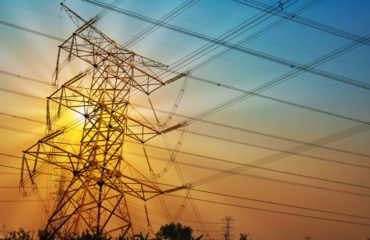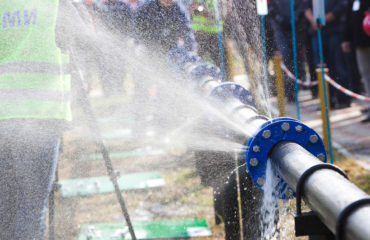
The drive for more environmentally friendly worldwide energy policies hit a major bump in the road last month when the USA announced plans to pull out of the Paris climate accord.
The agreement was drawn up within the United Nations Framework Convention on Climate Change (UNFCCC). It is due to kick off in the year 2020, responding to the growing climate threat with greenhouse gas emissions mitigation, adaptation and finance. In short, it has become a key building block in the global fight against climate change.
Despite this sudden change of course from one of the world’s superpowers, the need to manage increasingly diverse energy resources in a more environmentally way is unlikely to go away anytime soon. The UK itself has just set a new record for renewable energy output, which shows that progress is being made by a wide range of energy providers.
Complex problems demand smart solutions
One vital way for the world to deal with the climate challenge is for organisations in the utilities sector – to develop smarter ways of working.
What does ‘smarter’ mean? Essentially this means adopting working practices that drive towards greater energy efficiency, reduce pollution, enable a shift towards renewable energy sources and ensure that the non-renewable energy we do generate is never wasted.
And this is where smart grids come in.
Something of a catch-all term, ‘smart grids’ refer to any electrical grids that have incorporated measures like intelligent meters and smart appliances – in other words, grid that have incorporated digital data into its operations.
In turn, this enables utility providers to more tightly govern the allocation of energy, to analyse supply and demand, predict future peak periods, and even to develop innovative new environmentally friendly services, like plug-in points for electrical vehicles.
Problem? We can track that
Another vital way in which smart grids can improve efficiency is when a problem or failure occurs somewhere on the grid. Without the insight provided by grid data, identifying, isolating and repairing a problem can typically be a time consuming manual job for utility providers.
By contrast, a smart grid with sensors and devices that collect and consolidate performance data can make it far easier for maintenance engineers to understand how the different elements of the grid are operating, collectively. Once this data can be communicated from one site to another, it can feed into the automation of other processes that would have previously required manual intervention. For example, power outages can be isolated and restricted to small localised areas at speed.
Mission-critical communications for the utilities sector
Simoco Wireless Solutions has worked hard to develop a portfolio of communications services that can help utility organisations to drive efficiencies and improve environmental performance. By extracting intelligent data from their existing infrastructure, energy companies can use that intelligence to make strategic interventions, reducing direct energy waste and introducing services such as smart meters that enable their customers to use energy more efficiently too.
However, in order for this to work, utilities companies need to ensure the reliable provision of that data. They need to be sure that the right information is extracted from their networks, in real time, and analysed effectively. This, in turn, requires smart communications systems, which integrate the various data collection and analysis tools and ensure that data from the network can be used effectively. And this is where Simoco Wireless Solutions comes in.
We ensure that the utilities sector can respond to the climate change threat by delivering greater energy efficiency and developing new environmentally-friendly services. We also know that saving other kinds of energy and resources – the hours taken for maintenance engineers to discover exactly which part of the grid is causing an outage, for example – helps utilities companies to remain competitive and innovative.
Click here to learn more about our services for the utilities sector.


